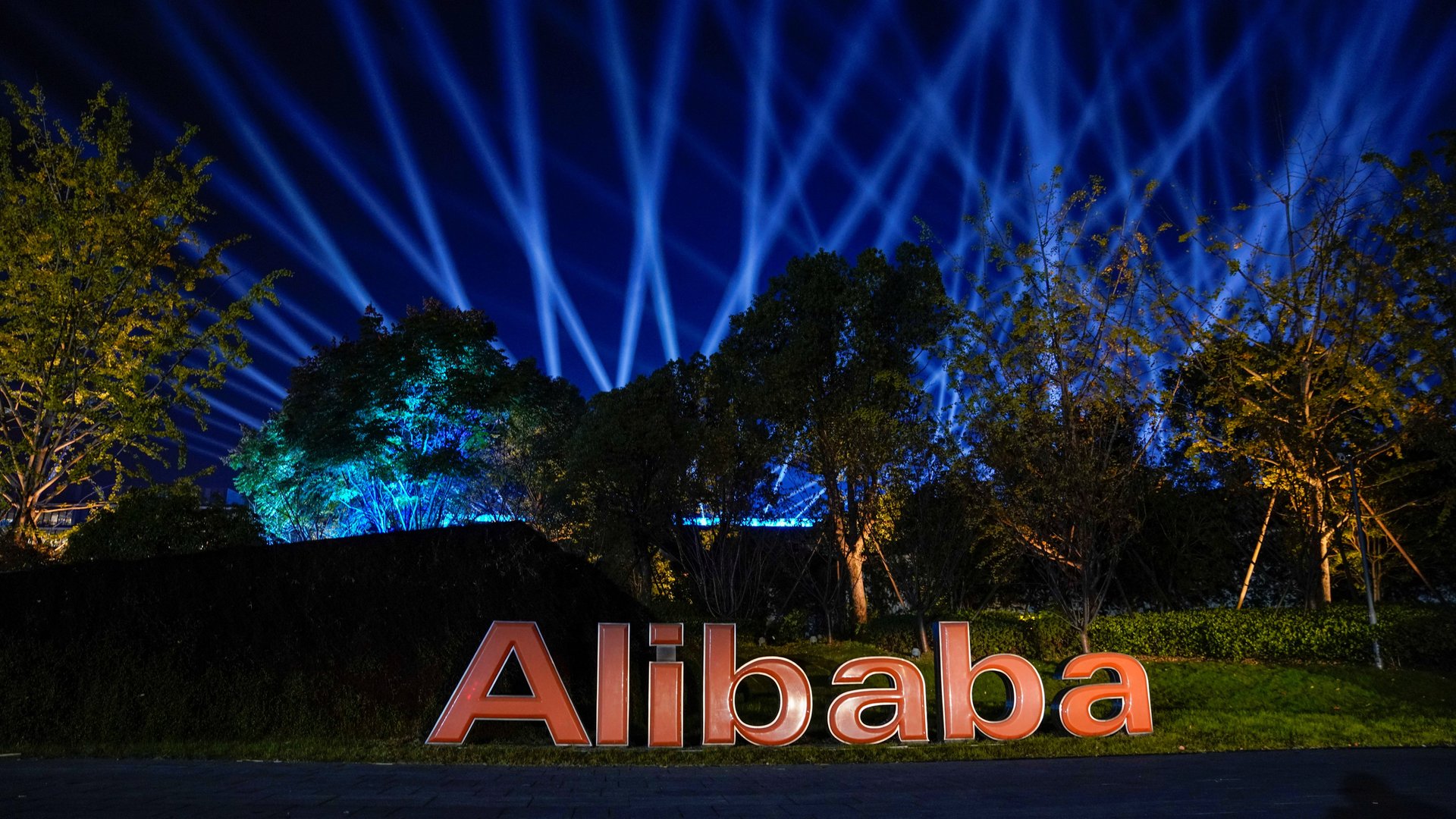Alibaba reminds investors China’s censorship regime is a business risk
When e-commerce giant Alibaba carried out the world’s biggest IPO in 2014, the world got a rundown of the worries of China’s most valuable company. Five years on, as it prepares to raise more than $11 billion in Hong Kong, it’s giving investors a fresh look at the key risks to its businesss.


When e-commerce giant Alibaba carried out the world’s biggest IPO in 2014, the world got a rundown of the worries of China’s most valuable company. Five years on, as it prepares to raise more than $11 billion in Hong Kong, it’s giving investors a fresh look at the key risks to its businesss.
The 65-page section of risk factors in its prospectus for a secondary listing filed with Hong Kong’s stock exchange yesterday (Nov. 13) reflects how much the global economy and China’s have changed in those five years. It lists US efforts against Chinese tech firms in the past year, further slowing in the Chinese economy, and trade protectionism as among major risks to its business. But one regulatory worry peculiar to companies in China has stayed the same—or possibly become even more onerous.
In the prospectus, Alibaba noted that under Chinese laws and those of some other jurisdictions, it is required to monitor its websites and the content its services host and generate “for items or content deemed to be socially destabilizing, obscene, superstitious or defamatory” as well as for products that are illegal to sell. If the company is found liable, it could be subject to negative publicity, fines, revocation of its business licenses or be prevented from operating its websites or mobile interfaces, according to the filing.
The requirement to monitor for destabilizing or superstitious online content appear to relate specifically to China, which calls on tech firms to remove content considered a risk to social harmony, as well as content that promotes what the ruling Communist Party considers outdated superstitions. The same language appeared in its 2014 prospectus as a requirement only of Chinese law. (In response to a question from Quartz on whether any jurisdictions apart from China require the monitoring of “destabilizing/superstitious” content, the company responded that the language in both prospectuses is “consistent in terms of messaging even though not word-for-word the same.”)
In 2019, however, global concern about the effects of China’s censorship efforts on companies is not the same as it was in 2014, especially as Beijing has extended its scrutiny to global firms, helped by online patriots. In the last few years, as China ordered airline companies to change their references to Taiwan, a self-governing island that China regards as a breakaway province, and the NBA faced a backlash for a tweet supporting Hong Kong’s protests, the potential global ramifications of China’s approach to controlling speech have gained new attention.
At the same time, Alibaba’s business empire has expanded into cloud computing, food delivery, offline retail, and entertainment, which means there are more ways in which it might run afoul of government sensibilities. Apart from having to weed out restricted items from being sold on its existing e-commerce platforms, it now also faces risks from businesses with user-generated content, such as the online streaming platform Youku it acquired in 2016, and its five-year-old workplace tool DingTalk:
It may be difficult to determine the type of content that may result in liability to us, our websites and platforms, such as our cloud computing services, which allow users to upload and save massive data on our cloud data centers, social communities on our marketplaces and DingTalk, and Youku, which allow users to upload videos and other content to our websites and platforms, may make this even more difficult.
Of course, other tech companies also have to abide by the laws of the countries in which they operate. But they generally don’t have to contend with the same level of scrutiny from the government regarding their content—even at a time when concern in the US about online disinformation has risen sharply. In fact, Amazon, which listed in 1997 in the US, said in its prospectus at the time that it was not “subject to direct regulation by any domestic or foreign governmental agency,” but only governed by regulations applicable to businesses generally, or those governing access to online commerce. (Amazon does have its own rules on product-related video content, however, such as refraining from engaging in “divisive discussions concerning politics or other sensitive topics.”)
Alibaba expects to begin trading in Hong Kong on Nov. 26, according to its SEC filing.